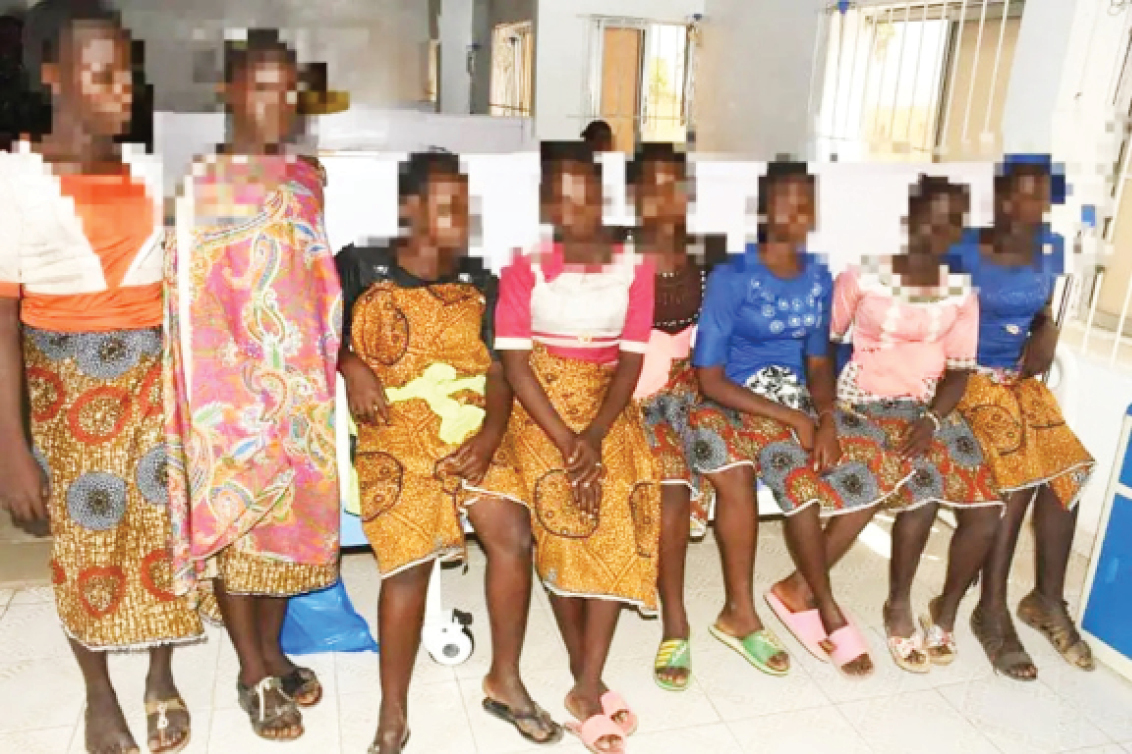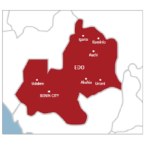At least N1.5b has been demanded in ransom by bandits and kidnappers within the first 100 days of 2023, just as families of kidnapped victims have raised and paid at least N48m to the criminals, a compilation of media reports by Daily Trust has revealed.
It was reliably gathered that the amount declared as ransom paid was just a fraction of the millions of naira paid to abductors. This is because many families preferred to just pay the ransom, recover their loved ones and keep quiet to avoid additional troubles with their tormentors.
Also, families of kidnapped victims often do not disclose ransom paid due to the amendment of Nigeria’s Terrorism (Prevention) Act, 2013, which now criminalises the payment of ransom to kidnappers.
Daily Trust reports that the sum of N1.5b, which was demanded from January 2023 to April 10, forced several families to sell their properties to raise a cumulative N48 million for bandits who are holding hundreds of Nigerians in captivity, mostly around Niger, FCT, Kaduna, Nasarawa and Kwara states.
Analyses from government official records and media reports also disclosed that at least 1,372 Nigerians were kidnapped during the period. The data showed that 106 kidnapping incidences were reported across 28 states with Kaduna accounting for over 50 per cent of the cases.
Data from the Kaduna State Ministry of Internal Security and Home Affairs showed that 746 persons were kidnapped from the state within the period under review.
However, data from media reports mined by this newspaper showed the state is trailed by Niger State where 205 persons were abducted and Zamfara State where 84 persons were kidnapped and Katsina State where 67 people were abducted.
Between January and April 10, the FCT had 63 people kidnapped, 43 others were abducted in Nasarawa State while 41 were abducted from Edo State and 18 from Anambra.
Others are Osun where 12 people were kidnapped while Kwara, Taraba, Imo and Kogi states had 10 people each kidnapped. States such as Delta, Plateau, Enugu, Cross River, Benue, Ogun, Kano, Lagos, Kebbi, Adamawa, Ekiti, Ondo, Bauchi, Akwa Ibom and Rivers states recorded single digit kidnappings.
On a month-on-month analysis, the data by Daily Trust revealed that January recorded the highest kidnapping incidences of 50 reported cases with 560 persons kidnapped. This is followed by the month of February with 14 incidents and 355 kidnapped persons. The month of March recorded 26 incidents and 335 kidnapped persons, while the first ten days of April showed 16 incidents with a high record of 122 persons kidnapped.
Ransom payment
In Adunu community of Paikoro LGA of Niger State, where about 50 people were abducted in the last one month, a community leader confirmed that kidnappers had demanded N200m, even though the community had raised and paid N10m.
The Sarkin Hausawa of Adunu, Alhaji Bakana Adunu, said members of the community had sold their belongings and farm produce to raise the money.
“We first gave them N6m in which they released 11 children. Then a few days ago, we took N4m to them but unfortunately, no one was released. Instead, the woman that took the ransom was detained while her husband was released. The bandits are now asking us to provide Honda motorcycles, each of which is worth about N800,000 per head of the 39 persons still in captivity,” he said.
In Nasarawa State, where the kidnappers of the former deputy governor of the state, Prof. Onje Gye-Wado had earlier demanded N70m for his release, Daily Trust had reported that the sum of N4m was paid for his release.
In Kagarko LGA of Kaduna, bandits freed a man, his three wives and four children after a cumulative N4m was paid as ransom as well as a motorcycle.
While in Zamfara State, gunmen who kidnapped children and women in Wanzamai village had earlier demanded N60m but later reduced the ransom to N30m. It is however uncertain if any part of the ransom had been paid.
Our communities unsecured- Villagers
The Councillor representing Adunu Ward in Niger State, Abraham Sabo, said there has been little or no security presence in their communities before and after the February 25 presidential elections, which he said made them vulnerable to attacks.
“Almost every night, we do not sleep in the community due to rumours that they (bandits) are in the bush close to us. We leave our homes to sleep in the bush, it is in the daytime that we return to our homes,” he said.
In Birnin Gwari LGA of Kaduna State, residents said kidnappings had continued into the election period even though the incidents were rarely reported.
“The kidnappings in February were not as common because there was a military operation before the election. Also, we all suffered from the cashless policy including the bandits,” said Adamu Isa, a resident of Randegi in Birnin Gwari.
He said some of those abducted in February are still in captivity because their families could not raise the cash demanded by the bandits.
“At one instance, the bandits demanded we bring them motorcycles if we cannot raise cash. They told us that they understood that we could not raise cash due to the government policy and instead, asked us to bring motorcycles,” said Abubakar Ibrahim, another resident of Birnin Gwari.
“But at the moment, they are demanding we bring money. Residents of Kuyello, Randagi and other areas of Birnin Gwari can no longer access their farms because banditry activity has returned in full,” he said.
Why kidnappings have returned- Experts
A security expert, Group Captain Sadeeq Garba Shehu (rtd), has said the seeming reduction of banditry attacks during the presidential election was a mere coincidence and had nothing to do with improved security architecture around the country.
“The whole media was focused on the election because it was the biggest event. The naira scarcity might have a slight impact but we should think like a modern country.
“I do not agree with starving people of the naira as a solution to banditry, it is a short term way of looking at it, this should not be a lasting or durable solution to insecurity,” he said.
He said the Nigerian security forces lacked the capacity in terms of numbers, equipment and mobility assets to address the kidnapping problem adding that, “Soldiers or policemen having weapons and vehicles but without effective communication will see bandits operating at will.
“Mobility assets are also important because where bandits operate, troops are still using Hilux, which will limit the transportation and time reaction of the military,” he said.
On his part, Group Captain John Ojikutu (rtd) linked the resurgence of kidnapping in mostly the northern part of the country to the availability of cash after the elections.
Ojikutu said if the government had not curtailed the flow of cash during the elections, bandits would have struck at various parts of the country.
“When the money was not available to them, the bandits went low. Now that the money is out again, they have started. So, they are working for money and I believe that there are people encouraging them,” he said.

 Join Daily Trust WhatsApp Community For Quick Access To News and Happenings Around You.
Join Daily Trust WhatsApp Community For Quick Access To News and Happenings Around You.


